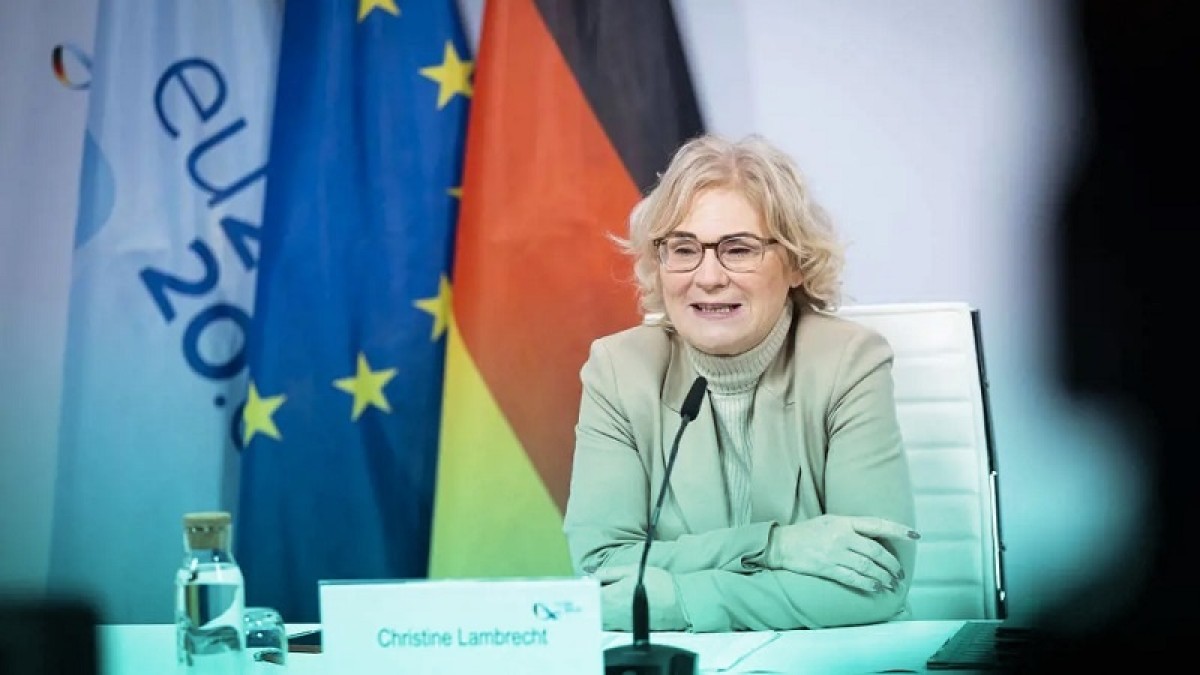 103
103
The departure this week of Christine Lambrecht, Germany's defense minister, caused a political earthquake that could have shaken the government led by Olaf Scholz.
At this point Berlin must hurry to fill the void left by Lambrecht. Not just because of the importance of having a defense minister in office while still inflaming the Ukrainian conflict. Lambrecht’s resignation, replaced on Tuesday with the little-known Boris Pistorius, is in fact to be linked to the alleged hesitations highlighted in approving the shipment of increasingly sophisticated weapons to the Zelensky regime. More generally, the fate of the now ex-minister was marked by the slowness with which, under his supervision, the “modernization” plan of the German armed forces was carried forward, i.e. the most consistent impulse to militarism since of the Nazi regime.
Formally, Lambrecht would have seen her position weaken due to the accumulation of various controversies that have exploded since her appointment. Media and opposition politicians had already started targeting her at the beginning of last year, when she announced the sending of 5,000 helmets to Ukraine, presenting the initiative as a “clear signal” of the German willingness to be at Kiev’s side in the comparison with Moscow.
A few months later, a controversy also broke out over a flight aboard a military helicopter on which the minister had been accompanied by her 21-year-old son. The news had circulated thanks to a post published by Lambrecht herself on her Instagram account. Another recent intervention on this “social media” finally gave the detractors the opportunity to deal the definitive blow that forced her to resign. In an embarrassing video shot in the streets of Berlin amid New Year’s celebrations, the Social Democrat minister had made a point of explaining how the war “raging in Europe” had given her “special sensations” and allowed her to meet “many important and interesting people”. .
In the immediate future, the change at the helm of the Defense Ministry was necessary to try to show a change of pace in conjunction with this week’s summit of Ukraine’s sponsors at the Ramstein base, which will also be attended by the number one of the Pentagon, Lloyd Austin, and in which he will take stock of the new supplies of arms to be sent to the regime in Kiev. In this regard, Germany is under pressure to give the OK to send Leopard 2 battle tanks. The Scholz government has so far been hesitant to take a decision in this regard, but an increasing number of European countries are pushing for Berlin to unblock the situation. Finland and Poland, for example, would be ready to deliver a certain number of Leopard 2s to Ukraine, but, as the tanks are German-made, the sales agreements provide that sending to third parties is authorized by Germany.
According to some commentators, Christine Lambrecht’s successor will have to receive some blessing from Washington and be ready to concede what is required of the Ukrainian regime. Until Monday, the favorite for the post of defense minister seemed to be the “hawk” of the SPD, Eva Högl, among the politicians most active in promoting the Ukrainian cause, as well as massive investments in the domestic military front. The choice of Pistorius, also a social democrat and current head of the interior department of the regional government of Lower Saxony, will instead be entirely evaluated. Scholz may have opted for a low-profile national figure to personally control the defense portfolio, even if the German press seems to attribute to Pistorius those characteristics of decisiveness and determination theoretically necessary to implement the acceleration requested by many.
In any case, it must be said that the prudence attributed to Lambrecht, as well as to Scholz himself, must be evaluated from the perspective of the anti-Russian hysteria that pervades the vast majority of the European political class. If there is resistance in the Berlin government to provoking a further escalation of the conflict by delivering more powerful weapons to Ukraine, it is also true that Germany has so far released a lot of material that is not exactly harmless, such as, just to mention the most recent cases , 40 Marder combat vehicles and a battery of Patriot anti-aircraft missiles to be installed in Polish territory.
Comment
Post a comment for this article